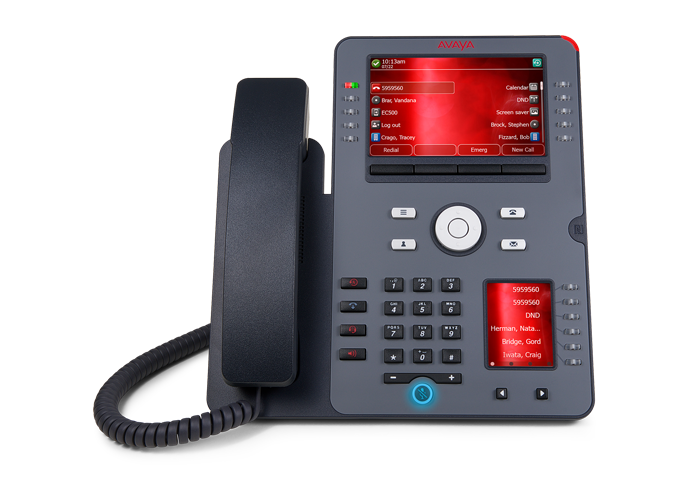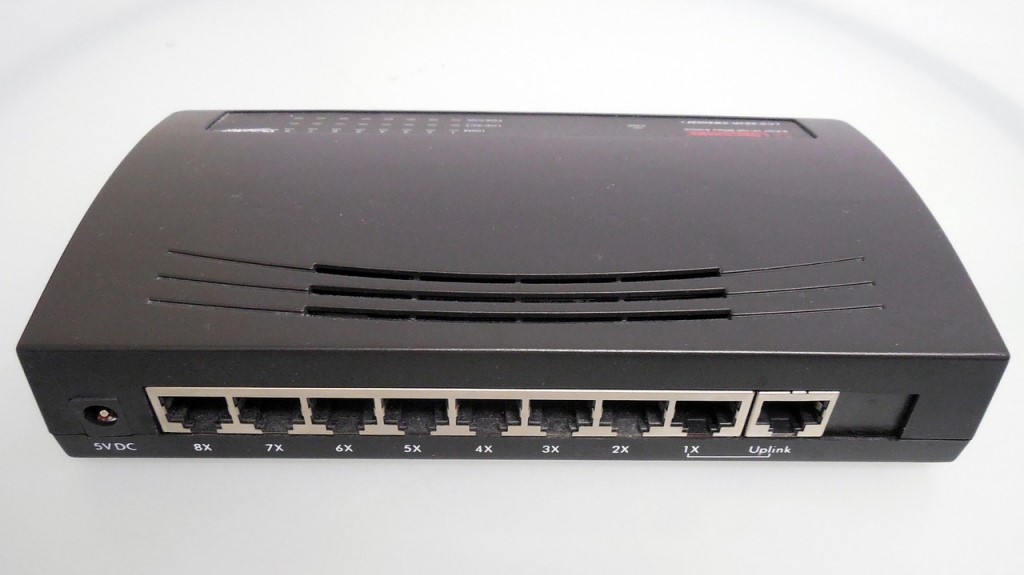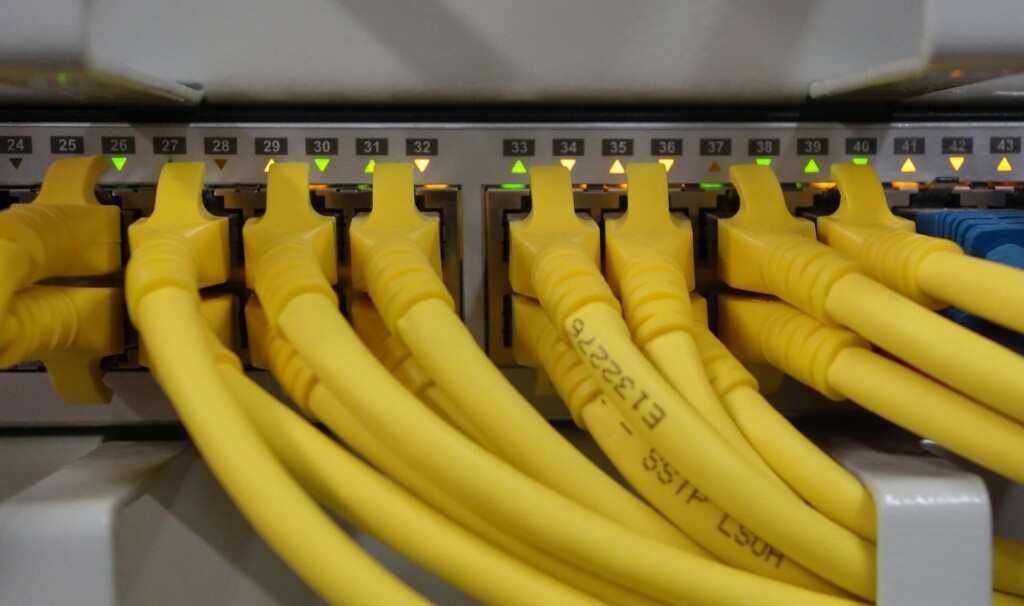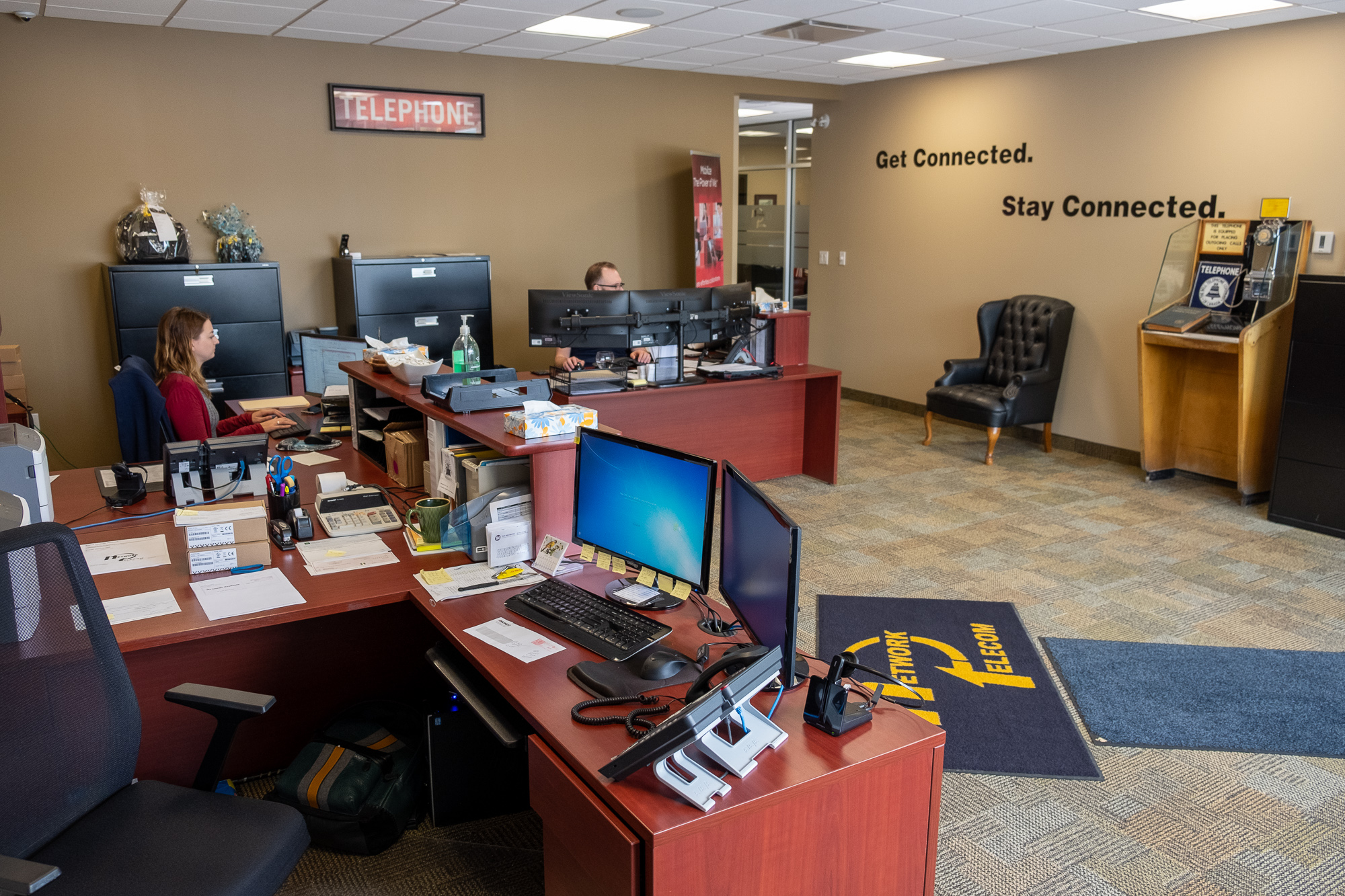Corporate phone systems are crucial tools for any size of business. Installing the right system that can grow as your business grows is key to having effective communication and collaboration throughout your organization. The following information will help you choose the right system for your needs.
- What Are Corporate Phone Systems?
- Key Features of Corporate Phone Systems
- Corporate Phone System Equipment
If you need advice and help installing your phone system, contact us.
Corporate Phone Systems
1. What Are Corporate Phone Systems?

Corporate phone systems help your staff communicate inside and outside your organization.
Corporate phone systems, also known as business phone systems or enterprise phone systems, are telecommunications networks and infrastructures designed to facilitate communication within your organization or business. These systems go beyond individual personal phone lines and provide features and functionalities that cater specifically to the needs of your business environment.
Corporate phone systems enable your employees to communicate efficiently both within the organization and with external parties, such as the following:
- Clients
- Partners
- Customers
- Suppliers
Corporate phone systems can be set up and installed in different ways. These include:
- Traditional landline-based systems
- Voice over Internet Protocol (VoIP) systems
- Cloud-based solutions
VoIP and cloud-based systems have gained popularity due to their cost-effectiveness, flexibility, and advanced features. Traditional landline systems are more expensive to install, maintain, and upgrade. They also don’t offer the wide range of features that cloud and VoIP systems do.
2. Key Features of Corporate Phone Systems

Some of the key features of a corporate phone system are auto attendants, voicemail, and call routing.
Here are some of the key features or capabilities that a corporate phone system can offer you:
Internal Extension Dialling:
With internal extension dialling, employees can dial each other’s extensions directly within the organization, making communication more efficient.
Auto Attendant:
An auto attendant is an automated system that greets your callers and provides them with options to connect to specific departments or individuals.
Interactive Voice Response (IVR):
Similar to an auto attendant, an interactive voice response (IVR) system allows callers to interact with a menu of options using voice or keypad input.
Voicemail:
Employees can leave and retrieve voicemail messages, enhancing communication even when parties are unavailable.
Call Routing:
With call routing, you can have your calls directed to the appropriate department or employee based on predetermined rules or user input.
Conference Calling:
With conference calling multiple participants can join a single call, enabling group discussions and meetings.
Call Forwarding:

Conference calling enables you to have group meetings over a phone.
Calls can be forwarded to another number, such as a mobile phone, to ensure accessibility regardless of where you are located. This is a great feature for mobile and hybrid workers.
Call Recording:
Certain systems allow for call recording, which can be valuable for quality control, training purposes, or compliance reasons. This feature is great for call centres and departments making customer service calls.
Unified Communications:
With unified communication, you can integrate various communication methods like voice, video, instant messaging, and email into a single platform for streamlined communication.
Integration with Customer Relationship Management Software:
If you use customer relationship management (CRM) software then this is a great feature. Corporate phone systems can be integrated with your CRM allowing your employees to access customer data during calls for a more personalized experience.
Scalability:
Corporate phone systems can be scaled up as your business grows, accommodating more lines, extensions, and features. Scalability is especially easy with VoIP and Cloud-based phone systems as you don’t need to install new physical phone lines to have more users.
Remote and Mobile Access:
Many modern systems support remote access and mobile apps. This can help employees to stay connected even when they are not in the office.
3. Corporate Phone System Equipment


Corporate phone systems can include VoIP phones and routers.
Setting up a corporate phone system involves several components and equipment to ensure seamless communication within your organization. The specific equipment you’ll need can vary based on the type of phone system you’re implementing (traditional, VoIP, or cloud-based), the size of your organization, and your specific requirements.
Here’s a general overview of the equipment you might need:
Phone Handsets or Devices
Desk Phones:
These are traditional landline-style phones that connect to your phone system using analog lines.
VoIP Phones:
VoIP phones can resemble desk phones but they are designed to work with VoIP systems. They often have enhanced features like high-definition audio and video capabilities.
Softphones:
Softphones are software applications that turn computers, smartphones, or tablets into virtual phones using VoIP technology.
Network Infrastructure
Ethernet Switches:
Ethernet switches are high-quality devices used to connect your phones and network devices. They ensure that you have a smooth VoIP traffic flow.
Quality of Service (QoS) Configuration:
This is a type of network setting that prioritizes voice traffic over other internet traffic to ensure you have clear calls.
Router:
For VoIP or cloud-based systems, a router capable of handling Voice over IP traffic and facilitating internet connectivity is essential.
SIP Trunking or Analog Lines:

Corporate phone systems may have different components depending on the type of system you have.
If you are using VoIP, you’ll need SIP trunking services to connect your phone system to the public switched telephone network (PSTN) for external calls. Analog lines are necessary if you have a traditional landline and you are not using VoIP.
VoIP Gateway (Optional)
A gateway converts analog signals to digital for integration with VoIP systems. This is highly useful if you’re transitioning from a traditional phone system to VoIP.plify the setup process.
Conference Equipment (Optional)
If you will be doing conference calling you may need the following:
- Conference phones
- Microphones
- Speaker systems
- Video conference collaboration units
These devices will help you host group audio and video calls.
Security Measures:
Firewalls and security devices protect corporate phone systems from potential cyber threats. These are essential things to install in order to keep your sensitive information safe.
Power Backup and Redundancy (Recommended):
You need an Uninterruptible Power Supply (UPS) to ensure your phone system remains operational during power outages. It is also a good idea to have redundant hardware or failover configurations for enhanced reliability.
Cabling and Installation Materials:
The following cabling and installation materials are often needed when installing corporate phone systems:
- Ethernet cables
- Power cables
- Cable management tools
- Installation materials for setting up phones and other devices
Keep in mind that technology is evolving, and cloud-based solutions are becoming more popular due to their ease of deployment, scalability, and reduced need for on-site hardware. Depending on your organization’s needs and budget, you might choose to work with a vendor that provides a complete solution, which can simplify the setup process.
Planning a Corporate Phone System Upgrade? We Can Help
If you are planning a corporate phone system upgrade, we can help. We have extensive experience in telecommunications and will make sure that your transition to a new system is as smooth as possible.
Whatever your business telecommunications needs are, Network Telecom is here for you. We have been selling, installing, and servicing every type of phone system for over 40 years. We can even help with training your employees on the features of your new phone system so that you can use it as efficiently as possible.
If your phone system is not working as it should, our trained technicians are available to help 24 hours a day, 7 days a week, 365 days a year. We carry a huge selection of parts in order to quickly solve any component issues you are experiencing.


In addition to our accredited and certified technical expertise, we offer:
- Consultative Sales
- Cloud Services
- Ongoing Support
- Voice Mail Systems
- System Design + Consulting
- System Admin + User Training
- PA Systems
- VoIP Specialist
- Network Cabling
“Network Telecom was wonderful to work with. Helpful and knowledgeable, their team transitioned our office to the new phone system with ease. They were also available to answer concerns and provide additional support post transition. Would definitely recommend their services. Thank you to the team at Network Telecom!”
“We just had an installation done today and it was a great experience. I am not at all tech savvy but everything was explained in a helpful and patient manner. The system seems great and we are really looking forward to running a more efficient office. Highly recommended!”
“Outstanding Service! We had a full phone system installed at a brand new facility and the experience was great. From sales to service the team followed through. The support we have received so far has been excellent. During our install the Network Telecom team even stepped in to help another company who couldn’t complete their portion of the install on time. They truly understand the big picture and will do what it takes to ensure the install is completed to keep your business up and running. 10/10”

